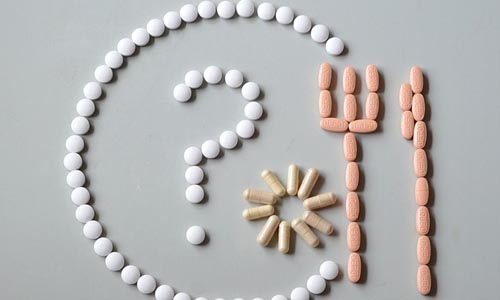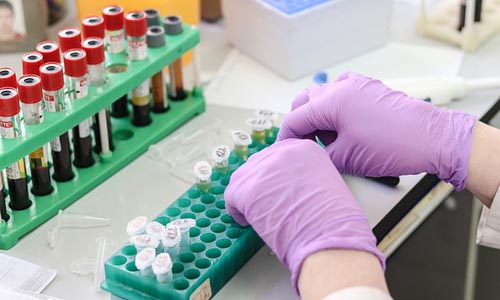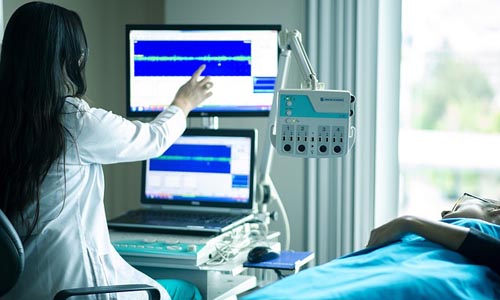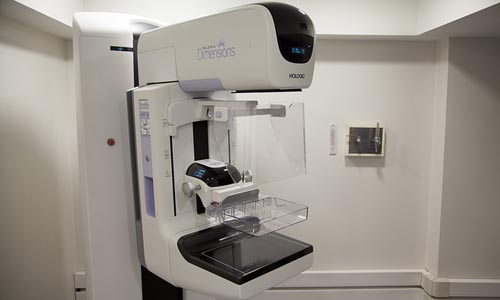Medical Research Translation Service
Medical research translation involves the conversion of scientific research findings from one language to another, ensuring that critical medical knowledge is accurately and effectively communicated across linguistic and cultural barriers. This field requires a deep understanding of both the source and target languages, as well as specialized medical terminology. It plays a vital role in facilitating global collaboration, enabling the dissemination of groundbreaking discoveries, clinical trials, and treatment protocols to diverse populations. In medical research translation, precision is paramount, as errors or ambiguities can lead to misunderstandings that may impact patient care and clinical outcomes.

Why Choose Us
Best Medical Research Translator

1.Translation Use
The use of medical research translation is essential for bridging linguistic and cultural gaps in the global healthcare community. Accurate and clear translation of medical research documents ensures that critical scientific information, clinical findings, and health-related data are accessible to professionals, researchers, and organizations worldwide. Below are key areas where medical research translation is crucial:
- International Collaboration: medical research often involves international teams, requiring the translation of research papers, clinical trial reports, and academic articles into multiple languages to facilitate collaboration and the sharing of findings across borders.
more
- Publication in Scientific Journals: translating medical research into widely spoken languages is important for researchers aiming to publish in international journals. This helps ensure that research reaches a broader audience and contributes to the global knowledge base.
- Clinical Trials and Regulatory Approvals: in clinical trials, medical research documents (e.g., informed consent forms, trial protocols, and results) need to be translated for participants, regulators, and stakeholders from different countries to ensure compliance with local regulations and ethical standards.
- Patient Education Materials: research findings on treatments, procedures, or diseases often lead to the creation of patient education materials. These documents must be translated into the languages of diverse patient populations to improve health literacy and informed decision-making.
- Health Policy and Guidelines: medical research frequently informs health policies and guidelines. Translating these documents ensures that policymakers, healthcare providers, and institutions in different countries have access to the latest scientific evidence when formulating health policies.
- Pharmaceutical and Medical Device Development: translation of research related to new pharmaceuticals or medical devices is necessary for global product development, marketing, and regulatory approval. This ensures that all stakeholders, including medical professionals and regulatory bodies, understand the latest research and clinical trial data.
Medical research translation plays a crucial role in advancing global healthcare by ensuring the accuracy and accessibility of medical knowledge across different languages and cultures.
2.Qualification Requirements
The qualification requirements for medical research translation are critical to ensuring that translations are both accurate and scientifically valid. Below are the key qualifications needed for translators in this field:
- Medical Knowledge and Expertise: translators must have a strong understanding of medical terminology, concepts, and research methodologies. A background in life sciences, medicine, or healthcare is often required to accurately interpret complex scientific content.
- Proficiency in Source and Target Languages: high fluency in both the source and target languages is essential, especially for accurately conveying technical medical terms, as well as maintaining the nuances and intended meaning of the original text.
more
- Experience in Medical Research Translation: translators should have previous experience translating medical research documents such as clinical trials, research papers, drug studies, medical reports, and scientific journals. This ensures familiarity with the format, structure, and terminology of medical research documents.
- Knowledge of Regulatory Standards: translators must be aware of regulatory standards and requirements in both the source and target languages, such as FDA guidelines, Good Clinical Practice (GCP), and ethical considerations in medical research translation.
- Attention to Detail: medical research documents often contain highly detailed information. Translators must have a keen eye for detail to ensure that data, numbers, and references are accurately translated without altering the meaning or structure of the original content.
- Confidentiality and Data Security: given the sensitive nature of medical research data, translators must adhere to strict confidentiality agreements and data security protocols, particularly when handling clinical trial data or patient information.
These qualifications ensure that the medical research translation process is carried out with precision, preserving both the scientific integrity and regulatory compliance of the original document.


3.Translation Principles
The translation of medical research documents is a highly specialized field that requires precision, accuracy, and an understanding of complex medical terminology. Below are the key translation principles for medical research translation:
- Accuracy and Precision: the translation must faithfully reflect the meaning of the original text without omission or alteration. Inaccuracies in medical research translation can lead to misunderstandings, compromised treatment protocols, or incorrect data interpretation.
- Consistency in Terminology: consistent use of medical and scientific terms is critical, as inconsistency could lead to confusion or misinterpretation, especially in complex studies or clinical trials.
more
- Adherence to Medical and Ethical Standards: the translation should align with medical and ethical standards, particularly when dealing with patient data, medical procedures, or experimental methods.
- Clarity and Readability: the translation should be clear and easily understood by the target audience, whether it is medical professionals, researchers, or the general public.
- Cultural and Linguistic Sensitivity: medical practices and health concepts may vary across cultures and languages, so cultural sensitivity in the translation is essential.
- Contextual Understanding: translators must understand the broader context of the research to accurately translate study designs, methodologies, results, and conclusions.
These principles help ensure that medical research translations are reliable, accurate, and professionally executed, maintaining the integrity of the original research while making it accessible to a global audience.
Medical Research Translation in 3 Simple Steps
4.Internal Quality Management
At Jinyu Translation, we prioritize excellence in our Medical Research translation services through a robust internal quality management system. Our approach is designed to ensure accuracy, consistency, and clarity in all translated materials, catering to the unique challenges of the immunology field.
Key Components of Our Quality Management System:
- Expert Translators: We employ highly qualified translators with specialized knowledge in immunology. Each translator holds relevant academic degrees and has extensive experience in medical and scientific translation.
more
- Rigorous Review Process: Every translation undergoes a multi-tier review process. Initial translations are followed by thorough editing and proofreading stages, where our dedicated editors check for technical accuracy, proper terminology, and adherence to client specifications.
- Terminology Management: We maintain a comprehensive database of immunology terminology. This resource is continuously updated to reflect the latest research and developments in the field, ensuring consistency across all projects.
- Client Collaboration: We actively involve clients in the translation process, encouraging feedback and consultations to align our work with their expectations. This collaborative approach enhances the final product’s relevance and precision.
- Quality Assurance Audits: Regular internal audits are conducted to evaluate our translation processes and outcomes. These audits help identify areas for improvement, ensuring we consistently meet our high standards of quality.
- Training and Development: Ongoing training programs are implemented for our translators and editors, focusing on the latest advancements in medical research and translation best practices. This commitment to professional development enhances our team’s capabilities.
- Feedback Mechanism: We encourage clients to provide feedback on completed projects, which is used to refine our processes and improve our service quality. This feedback loop fosters continuous improvement and client satisfaction.
- Rigorous Review Process: Every translation undergoes a multi-tier review process. Initial translations are followed by thorough editing and proofreading stages, where our dedicated editors check for technical accuracy, proper terminology, and adherence to client specifications.
- Terminology Management: We maintain a comprehensive database of medical research terminology. This resource is continuously updated to reflect the latest research and developments in the field, ensuring consistency across all projects.
- Client Collaboration: We actively involve clients in the translation process, encouraging feedback and consultations to align our work with their expectations. This collaborative approach enhances the final product’s relevance and precision.
- Quality Assurance Audits: Regular internal audits are conducted to evaluate our translation processes and outcomes. These audits help identify areas for improvement, ensuring we consistently meet our high standards of quality.
- Training and Development: Ongoing training programs are implemented for our translators and editors, focusing on the latest advancements in medical research and translation best practices. This commitment to professional development enhances our team’s capabilities.
- Feedback Mechanism: We encourage clients to provide feedback on completed projects, which is used to refine our processes and improve our service quality. This feedback loop fosters continuous improvement and client satisfaction.
By integrating these components into our internal quality management system, Jinyu Translation ensures that our immunology translation services meet the highest standards, ultimately supporting our clients in their research and communication efforts.


5.Team Advantage
With nearly 20 years of industry refinement, 1 billion words produced, and over 10,000 interpretation sessions, Jinyu has always focused on the original needs of our clients. Our translation team excels at handling various professional documents, fulfilling entrusted tasks with ease.
We deeply understand the essence of translation, recognizing the needs and goals of our clients. We flexibly create optimized solutions based on different content and genres, delivering the highest quality results through our quality management system.
more
Our clients have always benefited from our team:
- Excellent cooperation with outstanding translators, translation companies, translation groups, and localization institutions worldwide, along with extensive social resources.
- Profound professional skills, extensive translation experience, and comprehensive knowledge.
- A robust quality system and strict confidentiality management.
- Meticulous, prompt, sincere, and efficient service.
- A rigorous, diligent, and punctual professional attitude.
- A spirit of continuous learning, pursuing perfection, and embracing innovation.
- Many companies, including the China Medical Device Industry Association, Yiju Medical, Johnson & Johnson, and Maxip Medical Technology, have chosen Jinyu Translation.
6.After-sale Guarantee
To ensure customer satisfaction and the highest quality of service, a comprehensive after-sale guarantee for medical research translation is essential. Here are the key components of an effective after-sale guarantee for medical research translation:
- Accuracy Assurance: We guarantee the accuracy of our translations. If any errors are found, we will promptly correct them at no additional cost.
- Timely Delivery: We commit to delivering all translations within the agreed timeframe. If there are any delays on our part, we will offer compensation or expedited service to meet your deadlines.
more
- Confidentiality: All documents and personal information are handled with the utmost confidentiality. We ensure that your sensitive information is protected throughout the translation process and beyond.
- Free Revisions: We offer free revisions if the translated document requires adjustments or if the immigration authorities request specific changes. Our goal is to ensure your complete satisfaction with the final product.
- Customer Support: Our customer support team is available to assist you with any questions or concerns you may have before, during, and after the translation process. We are committed to providing prompt and helpful responses.
- Quality Control: Every translation undergoes a thorough quality control process, including proofreading and review by a second translator, to ensure the highest standards of accuracy and consistency.
- Certified Translations: Our translations are certified and accepted by medical research authorities. We provide official certification statements or notarizations as required by the destination country.
- Ongoing Support: We offer ongoing support for any follow-up questions or additional translation needs that may arise related to the initial medical research translation.
In summary, our after-sale guarantee for medical research translation focuses on accuracy, confidentiality, timely delivery, free revisions, and comprehensive customer support to ensure that you receive the highest quality service and complete satisfaction with your translated documents.

